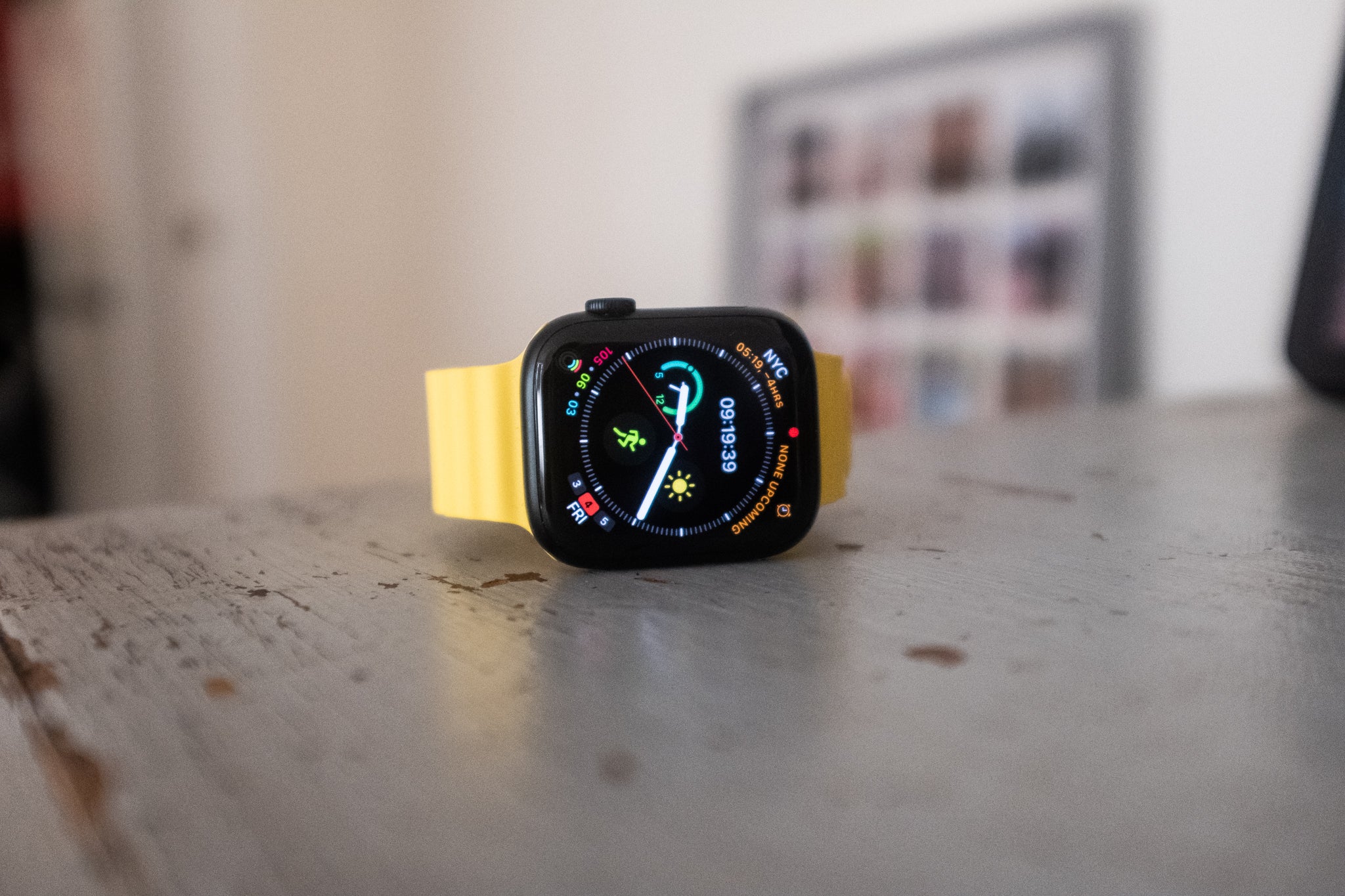Are Fitness Trackers Accurate? An In-Depth Look.
Fitness trackers are the hot new trend in health, and lots of people are eager to take advantage of the cutting edge tech offered by these tiny devices. But do fitness trackers live up to the hype? Is the data they collect actually accurate? In this article, we’ll take an in-depth look at fitness trackers and try to get to the bottom of this question once and for all.
List of Content
- 1. Introduction to Fitness Trackers
- 2. How Accurate are Fitness Trackers?
- 3. Pros and Cons of Wearing a Fitness Tracker
- 4. Factors Affecting the Accuracy of Fitness Trackers
- 5. Accuracy Rates of Popular Fitness Trackers
- 6. Conclusion: Should You Invest in a Fitness Tracker?
- You Ask, I answer

1. Introduction to Fitness Trackers
Fitness trackers are becoming an increasingly popular way to stay informed on one’s health, track and improve fitness levels, and motivate yourself to stay active or reach health goals. In this section, we’ll take a look at what fitness trackers are, how they work, why they’re beneficial, and what to look for when shopping for one.
What is a Fitness Tracker?
A fitness tracker is an electronic device or application for tracking and analyzing fitness-related information such as your heart rate, calories burned, sleep patterns, and steps taken. The device typically has sensors to track your activity. Some models may even be able to monitor your breathing and provide notifications when you need a break.
How do Fitness Trackers Work?
Fitness trackers work by capturing data from your body and recording that data in an app or web-based platform so you can access it later. Your tracking device is typically synced with your phone or computer via Bluetooth or Wi-Fi, allowing you to export your data or access it remotely. To further customize your experience, most tracking devices come with a companion app that provides users with updates about their goals and progress.
What are the Benefits of Using a Fitness Tracker?
Using a fitness tracker can help you stay on top of your fitness, make healthier choices, and track progress toward any health or fitness goals you might have. They also make it easier to stay motivated because you can measure your progress and set new challenges. Additionally, many devices offer personalized feedback on your fitness and nutrition goals. Here are some features to look out for when shopping for a fitness tracker that will help you reach your goals:
- Heart rate tracking
- Step counter
- Calorie and nutrition tracking
- Sleep monitoring
- Activity tracking

2. How Accurate are Fitness Trackers?
Language Level: Advanced.
Fitness trackers are rapidly becoming the go-to tool for tracking and managing one’s own health and fitness. But how accurate are devices such as smart watches and Fitbits when monitoring our health and activity?
Gathering Data
Smart watches and fitness trackers are able to provide us with a wealth of information. Whether measuring heart rate, steps taken or calories burned, these devices collect a large amount of data that can be useful for tracking health goals. These devices use sensors to measure movement and other physiological variables.
Interpretation of Data
The accuracy of fitness trackers depend on how well the device is able to interpret the collected data. With the right algorithms, this data can be accurate to a degree. But even in the best cases, there is going to be some degree of error. For example, step-counting accuracy can vary depending on the type of movement, such as walking or running.
Limitations
Even with the best technology, fitness trackers are still just devices and can be prone to inaccuracies. They can only measure certain variables and depending on the device, the accuracy may vary. Furthermore, fitness trackers are not always able to accurately track activities like cycling or swimming. Additionally, most fitness trackers are not able to take into account nuances in fitness level, such as measuring the intensity of activity due to fatigue or level of stress.
Overall, fitness trackers can be a useful tool for tracking and managing one’s health and fitness. But there is no single device on the market that can provide perfect accuracy. It is important to understand the limitations of each device before relying on its readings.
3. Pros and Cons of Wearing a Fitness Tracker
Fitness trackers are electronic devices that are used to track other aspects of fitness, like heart rate, sleeping cycle, or number of steps taken. If you’re looking for a way to stay on track with your physical fitness journey, a fitness tracker might be a great investment. Here, we discuss the pros and cons of wearing one:
Pros:
- Having a fitness tracker can motivate and help you stay on track with fitness goals.
- They help you monitor and measure several aspects of your physical activity, so that you can measure and compare progress.
- They can be a great way to make fitness a habit. You can set notifications and reminders to stay active.
Cons:
- They might be bulky and uncomfortable to wear, especially if worn around the wrist.
- There is a possibility of inaccuracy in the readings, depending on the make or model of the fitness tracker.
- They may also be quite expensive and require frequent charging.
Although a fitness tracker can be a great way to stay motivated and monitor your progress, it is important to weigh the pros and cons before purchasing one. Ultimately, it will depend on your specific fitness goals and needs.
4. Factors Affecting the Accuracy of Fitness Trackers
False Data
Erroneous data input can affect the accuracy of fitness trackers. If the tracker’s primary source of fitness data is through manual input of activities, such as calorie counting, step counting, and sleep logging, incorrect input can drastically alter data. To minimize the risk of false data input, users should double-check accuracy when entering their physical activity and calorie intake each day.
Calibration and Maintenance
Incorrect calibrations and wear patterns can cause fitness trackers to report inaccurate data. Many fitness trackers come with a recommended calibration guide to ensure maximum accuracy; users should adhere to the guidelines provided. A tracker that is not properly maintained (e.g., not regularly cleaned or recharged) can also lead to inaccurate data.
Sensors
The accuracy of a fitness tracker’s sensors affects the quality of data. Sensors that are too sensitive or prone to interference can result in inaccurate data. To minimize the chance of a faulty sensor, users should refer to reviews of a product before purchasing. Furthermore, regularly checking the sensor’s calibration and maintaining the fit of the device will help prevent faulty sensor readings.
External Interference
External interference can also lead to inaccurate data in fitness trackers. Common forms of interference include:
- Connected devices such as smartphone apps, music players, and other fitness trackers.
- Interference from outside sources, such as radio frequencies or power lines.
- External heat or temperature changes.
- Objects that are too close to the device.
In order to minimize interference, users should follow the product’s recommended guidelines for the proper placement and care of the fitness tracker.
5. Accuracy Rates of Popular Fitness Trackers
For anyone looking to track his or her fitness, there are lots of options to choose from. Popular fitness trackers have become increasingly advanced, enabling users to truly maximize their potential. But with so many brands and models out there, it can be hard to make sense of it all. This post will present the that are currently available.
Fitbit
Fitbit is a sought-after choice for fitness tracking. It comes in a variety of models and utilizes its own proprietary app. Its accuracy rates for steps taken, calorie intake, heartrate, and sleeptracking are all in the 90th percentile, making it a reliable option.
Apple Watch
The Apple Watch Series 3 has built-in GPS, making it great for tracking runs. It incorporates many features of the Apple iOS ecosystem, offering a rich user experience. Its accuracy ratings for steps, calories, and sleeptracking are just about on par with Fitbit, making it another great choice.
Garmin Vivosmart
The Vivosmart is reminiscent of a slimmed-down version of the Apple Watch. It has a touchscreen display and is compatible with all smartphones. It is slightly more accurate than the Apple Watch for steps taken, heartrate measurement, and calorie intake. Its sleeptracking accuracy rate is on par with the rest of the fitness trackers discussed here.
- Fitbit accuracy: 90th percentile
- Apple Watch accuracy: 90th percentile
- Garmin Vivosmart accuracy: Higher than 90th percentile
6. Conclusion: Should You Invest in a Fitness Tracker?
It depends on your fitness goals and lifestyle. Whether you should invest in a fitness tracker or not depends on what you want to get out of it. If you want to track your activity, losing weight, increasing strength, and monitoring progress, then investing in a fitness tracker is probably a good idea. Here are some things to consider when deciding if a fitness tracker is right for you:
- Activity Tracking: Do you want something that just tracks basic steps and calories or do you need detailed information about your activity?
- Monitoring Progress: How important is it to you to have insight to your progress?
- Losing Weight: Is losing weight a goal of yours? If yes, then a fitness tracker can help you track your progress and calorie intake.
- Increasing Strength: Are you looking to increase your strength? If so, then a fitness tracker can be beneficial by tracking reps and sets.
Fitness trackers offer an easy way to track your progress, and can be a great motivator. And if you’re already on a fitness journey, a fitness tracker can help you keep track of your progress and even make suggestions as to how you can go about meeting your goals.
At the end of the day, you have to decide if a fitness tracker is right for you. If you’re serious about hitting your fitness goals, then investing in a fitness tracker might be a smart choice. Not only will it help you stay on track, but it can help you maximize your progress in achieving your desired results.
You Ask, I answer
Q1: What is a fitness tracker?
A1: A fitness tracker is a device that monitors your physical activity and calculates how many calories you’ve burned during a workout or throughout the day. It’s often worn on the wrist, but it can also be in the form of a watch, belt, or other wearable tech.
Q2: Does a fitness tracker measure heart rate accurately?
A2: Yes, most fitness trackers measure heart rate quite accurately. However, it’s important to note that the accuracy can vary depending on how the tracker fits your body. Make sure the tracker is sitting snugly on your wrist or other location and that it’s in contact with your skin.
Q3: Is a fitness tracker reliable for tracking steps?
A3: Generally, yes. Most fitness trackers are reasonably accurate at counting steps. They measure the motion of your body, so the more vigorously you move, the more accurately your steps will be counted.
Q4: How accurate are fitness trackers for measuring calories burned?
A4: This depends largely on how you use the tracker. If you input your height, weight, age, and gender, the tracker will be able to make a more accurate assessment. No fitness tracker can say with 100% accuracy how many calories you’ve burned, but they can be helpful when it comes to monitoring your progress.
No matter what your goal, it’s important to remember that fitness trackers can be great sources of data and motivation. With their many metrics and features, they are great tools to throw into your fitness regimen. However, it’s also important to be aware of their potential inaccuracies and to use them accordingly. Knowing the limitations as well as the advantages of each device can help you get the most out of your tracking experience.


